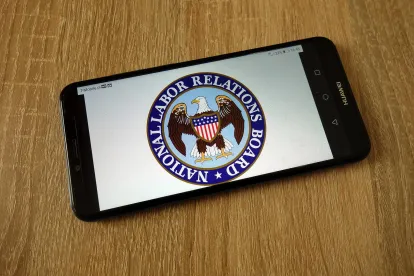The Court of Appeals for the D.C. Circuit has recently revived a portion of an election rule promulgated by the NLRB during the Trump administration. In 2019, the NLRB promulgated an election rule which modified several “quickie” election procedures established by the NLRB during the Obama administration in 2014. The 2014 Rule sped up the union election timeframe, and the 2019 Rule aimed to address criticisms that the timeframe was too short a time in which to meet the various new obligations triggered by the filing of a union representation petition while also adequately preparing for the representation hearing. The AFL-CIO sued in 2020 to block the 2019 Rule.
The United States District Court for the District of Columbia blocked portions of the 2019 Rule on May 30, 2020, ruling that five of its provisions were invalid because they were “substantive” in nature, and therefore, the NLRB should have promulgated the rule with notice to and comment by the public. On July 1, 2020, the district court issued another order rejecting the AFL-CIO’s remaining claims that the 2019 Rule as a whole was arbitrary and capricious and that the provision concerning ballot impoundment specifically was arbitrary and capricious and contrary to law. The NLRB and the AFL-CIO both appealed.
A divided Court of Appeals for the District of Columbia Circuit recently ruled in the case, reversing the district court in part. The Court of Appeals held that two of the five challenged provisions were “procedural” in nature, should not have been invalidated, and that the Election Rule’s impoundment provision was contrary to law. The remainder of the district court’s decision was affirmed.
The Court of Appeals, in a 2-1 decision, agreed with the district court that the following provisions were invalid because they were “substantive” in nature and issued without seeking and considering public comment:
-
Voter List Production Provision extending from 2 days to 5 days the time within which the employer must provide the union with the list of eligible voters;
-
Election Observers Provision restricting the parties’ choice of election observers to only current proposed bargaining unit employees; and
-
Delayed Certification Provision delaying the certification of election results until the time for filing a request for review with the Board has run, or if review is requested, until it is disposed of by the Board.
The Court of Appeals, however, disagreed with the district court as to two provisions. It found that two of the provisions were “procedural” in nature and therefore did not require notice and comment from the public. The Court ruled that the following provisions are valid:
-
Voter Eligibility Litigation Provision giving parties the right to litigate the status of particular individuals under the NLRA and consequently whether they are eligible to be in a bargaining unit and vote in the representation election before the election takes place; and
-
Election Schedule Provision requiring at least 20 business days between an order directing the election and the conduct of the election.
The Court of Appeals also ruled that a ballot impoundment provision in the 2019 Rule is invalid. Under the 2019 Rule, if a party files a request for review of a direction of election within ten business days of its issuance by the Regional Director, and the Board either grants the request or does not rule on it before the election occurs, then “all ballots shall be impounded and remain unopened pending such ruling or decision.” The Court found this provision was contrary to law, specifically section 3(b) of the NLRA. Section 3(b) provides that “the Board may review any action of a regional director delegated to him under this paragraph, but such a review shall not, unless specifically ordered by the Board, operate as a stay of any action taken by the regional director.” 29 U.S.C. §153(b). The Court of Appeals found that the impoundment provision operated as a stay in violation of section 3(b) because it postponed the counting of ballots and the counting of ballots is an action taken by the regional director. Accordingly, the Court vacated the provision. It remains to be seen whether either side will appeal this decision by seeking a rehearing before the full D.C. Circuit or to the Supreme Court. We will continue to monitor any developments and are available to assist clients in navigating this situation.





 />i
/>i

